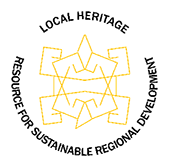
Research and educational workshops
![]()
fieldwork:
• May 2011 - Kalofer
• May 2011 - Kazanlak, Kalofer, Pavel Banya, Skobelevo
• May 2011 - Gorna Bela rechka
• June 2011 - Karlovo
• June 2011 - Kazanlak
• July 2011 - Svilengrad,
Mezek, Momkovo
• August 2011 -Zlatograd
• August 2011 - valley of Arda
• September 2011 - Perushtitsa
Intangible cultural heritage and sustainable development »
Cultural heritage reveals to a great extent cultural specifics of any community. It implies the ability to express collective identity, to sustain establishment of human and social networks. The contemporary use of the local heritage is an expression of the need of community to localize itself too. It is related not only to time-space localization of various production ways but also makes them sensible and valuable as a part of the social life.
The intangible cultural heritage is an important category. According to the Convention for the Safeguarding of Intangible Cultural Heritage adopted by UNESCO in Paris in 2003 the “intangible cultural heritage” means the practices, representations, expressions, knowledge, skills – as well as the instruments, objects, artefacts and cultural spaces associated therewith – that communities, groups and, in some cases, individuals recognize as part of their cultural heritage. It is manifested inter alia in the following domains:
(a) oral traditions and expressions, including language as a vehicle of the intangible cultural heritage;
(b) performing arts;
(c) social practices, rituals and festive events;
(d) knowledge and practices concerning nature and the universe;
(e) traditional craftsmanship.
During the last decades new models of use of the heritage for sustainable development of the local communities and territories developed, for a change of the relationship between town and village, for a change of the character of social relations. At a European level, this correlates to the understanding of heritage-as-project which implies the turn of the sight from the artifacts belonging to heritage to the project that underlines their choice as a part of the heritage, and hence to the general idea and aims of the community. Particular attention is paid to its economic valorization, which mirrors not only its uses for the market purposes but also its preservation and the development of institutions participating in this process. These new uses of heritage based on the balance between the local participation and European collaboration lead to important social dynamics and increase of the quality of life.
This is why the Council of Europe supports sustainability as an approach for management of the territories (regions) and for management of the heritage too. The notion of sustainable development is based on three main principles: economic development, social equilibrium and preservation of the environment which includes cultural and social heritage. The emphasis is on the capacity of cultural and natural heritage for adaptation to the current needs and requirements (adaptation to the structures and functions inclusive).
In Bulgaria there is already legal framework and strategies at hand, that envisage purposeful policy in such important spheres as development of countryside regions, bio-agriculture, trade marks, tourism, etc. The public debate about the role of the cultural and natural heritage in this process puts on the table also the topic of the local heritage as a resource for sustainable regional development.
![]()
Part of the archive photographs are kindly granted by www.lostbulgaria.com